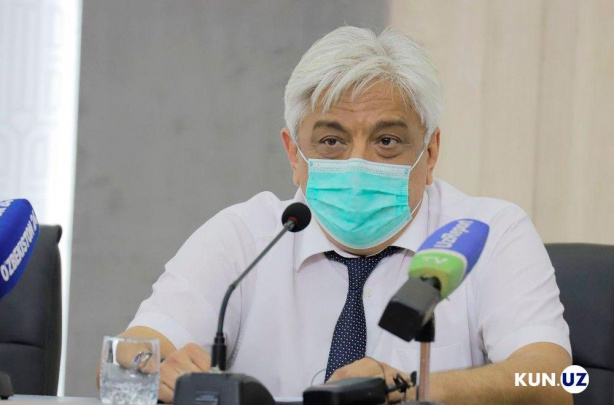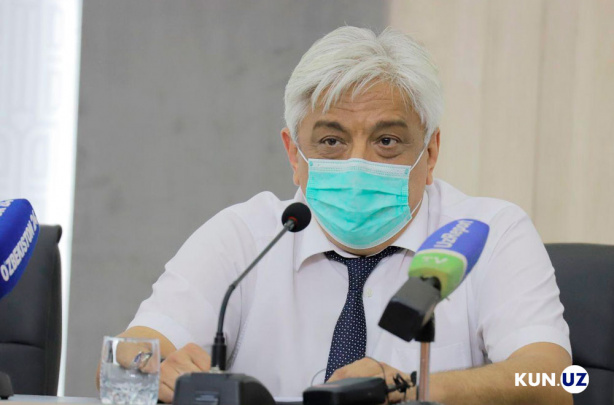“Uzbekistan relies on its own experience on the Plakvenil issue, not on WHO recommendations” – Khabibullo Okilov
Hydroxychloroquine, excluded from the coronavirus treatment protocol, is again being used to treat patients. According to officials, “Uzbekistan relies on its own experience, not on the recommendations of others.”
On August 3, a press conference was held at the AIMC with the participation of representatives from the Health Ministry. Officials were asked to comment on the controversy over the medicine Plakvenil (active substance – hydroxychloroxine).
According to Anvar Alimov, a member of the Anti-Coronavirus Staff, the issue of hydroxychloroquine is a political matter.

“The World Health Organization (WHO) has set up a working group to study the effects of Plakvenil in the treatment of coronavirus. However, the study was not completed, the research was suspended, and it was reported on June 3 that the topic would be readdressed again later.
The WHO has recommended that states should review treatment protocols based on data published in The Lancet. This shows that the Plakvenil issue is a political matter,” Alimov said.
Staff member Khabibullo Okilov said that Uzbekistan is relying on its own experience in the Plakvenil issue, not on WHO recommendations.

“The WHO is not an organization whose recommendations are must-follow. It is up to each state to decide whether to follow these recommendations or not.
Uzbekistan has been fighting the coronavirus since March and has gained experience in this area. So we can rely on our own experience, not on the recommendation of others.
Plakvenil works in the experience of Uzbekistan. Version 6 of the treatment protocol -- the current version -- also contains Plakvenil. It shows its effectiveness only at the initial stage of the disease – if it is prescribed in the first 3-5 days.
In addition, those who were in contact with coronavirus patients are given 2 Plakvenil tablets a week as prophylaxis. This is also included in the protocol,” he said.
Answering Kun.uz correspondent’s question about coronavirus patients who had been treated with Plakvenil, Okilov said that most of them have recovered from the disease.
“According to the latest statistics, the majority of the 16,838 patients, who recovered from the disease, received Plakvenil. The patients are treated on the basis of a single scheme,” the ministerial representative said.
According to Khabibullo Okilov, the situation in Uzbekistan is similar to all other countries: Plakvenil was removed from the treatment protocol and then it was re-introduced.
“The whole world has gone through this process. Many countries removed it from the treatment protocol after a relevant article was published in The Lancet. But when the magazine removed the article, most states returned to using it again. We also went back to our own experience. When we gave up using this medicine, the situation changed negatively,” he said.
It was noted that no research has been conducted to confirm the positive effect of Plakvenil on the experience of Uzbekistan.
“There is no need or time to study the effects of this medicine now. More than 16,300 recovered patients have a medical history. They remain in the archive for at least 25 years. Based on them, a lot of research will be done, and I am sure that conclusions will be drawn,” Khabibullo Okilov said.
It should be recalled that after the WHO stopped testing the effects of hydroxychloroquine against coronavirus, the medicine was withdrawn from the treatment protocol in Uzbekistan. Now it is included in the package of free medicines given to patients being treated at home.
Related News

20:51 / 04.08.2020
Uzbekistan still far from the second wave of the pandemic - Khabibullo Okilov

23:29 / 03.08.2020
“The healthcare system is ready to ease quarantine restrictions” – Khabibullo Okilov

12:18 / 10.07.2020




